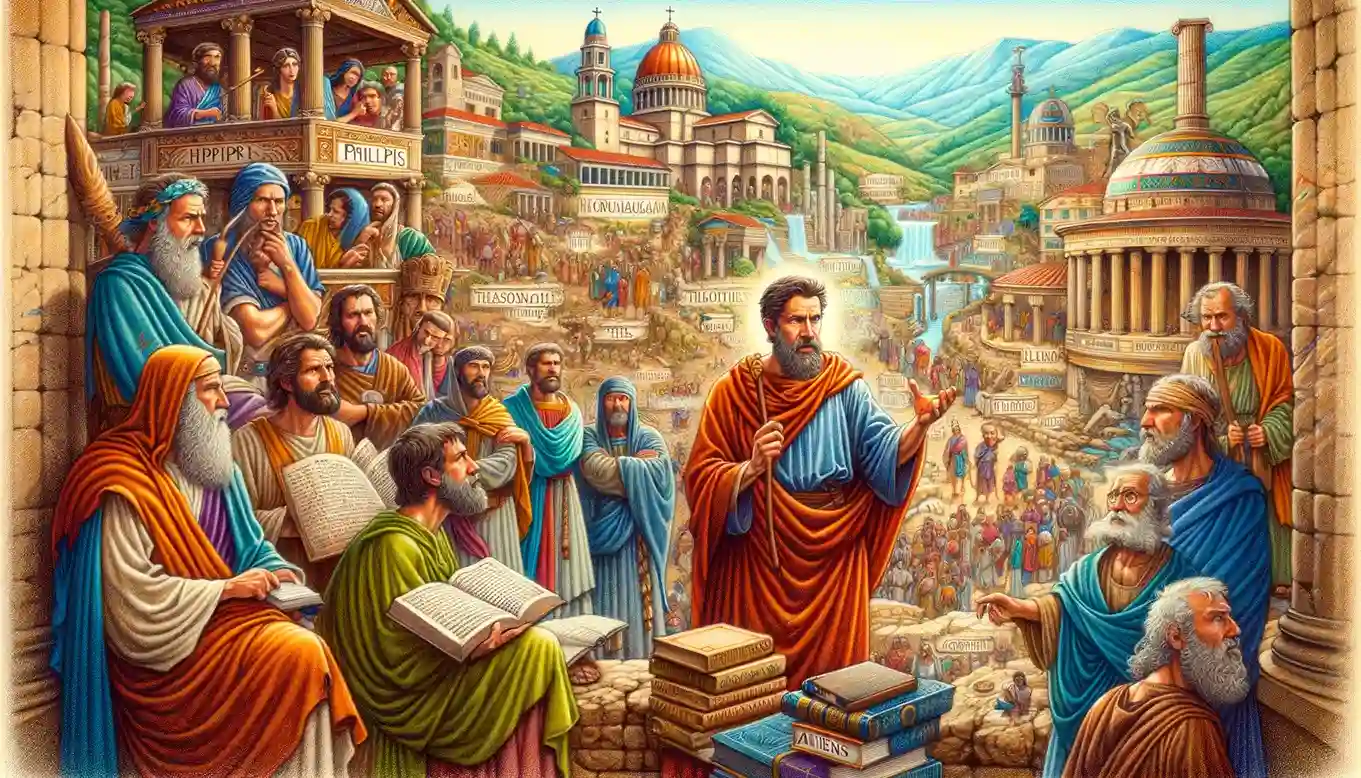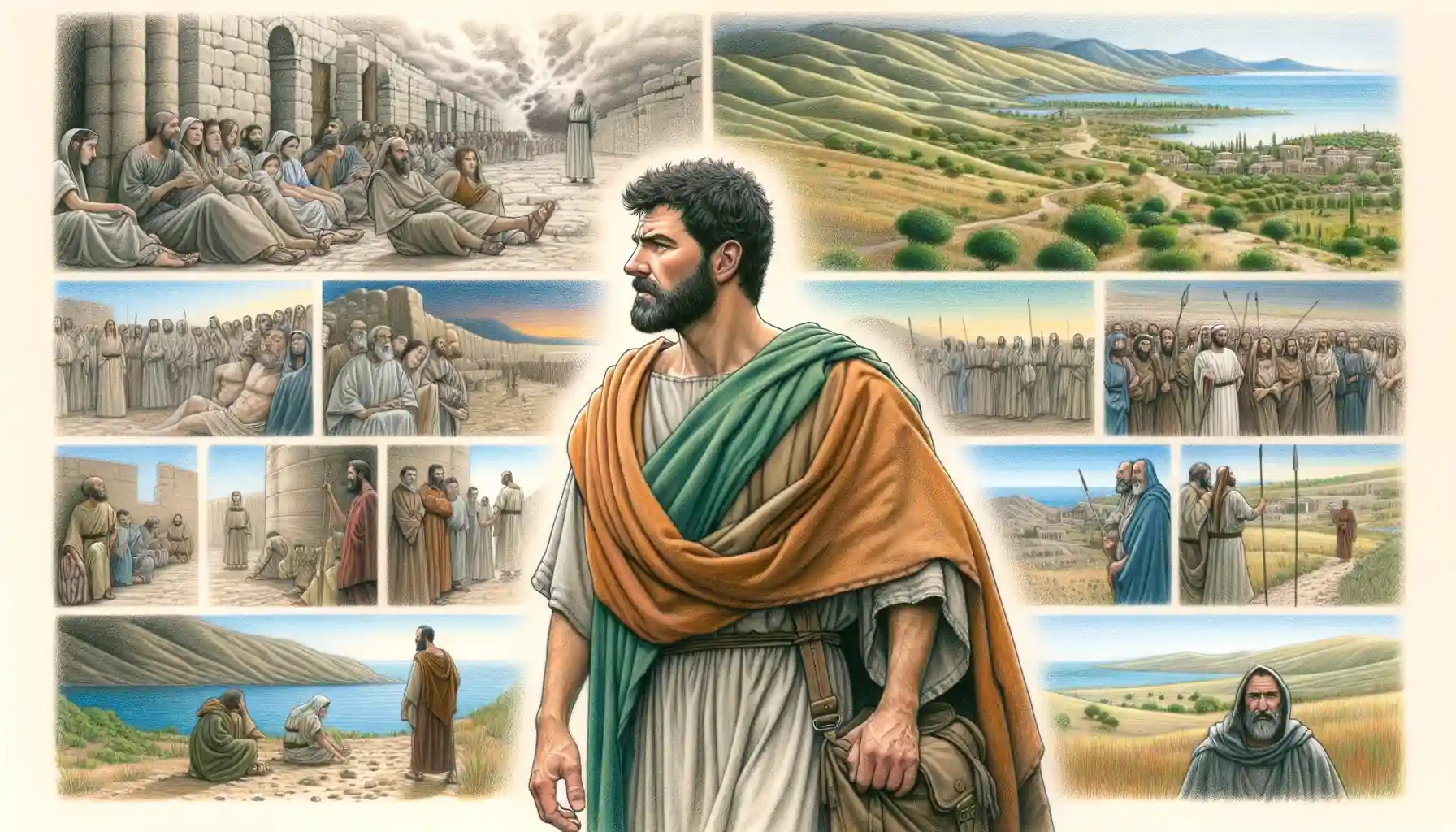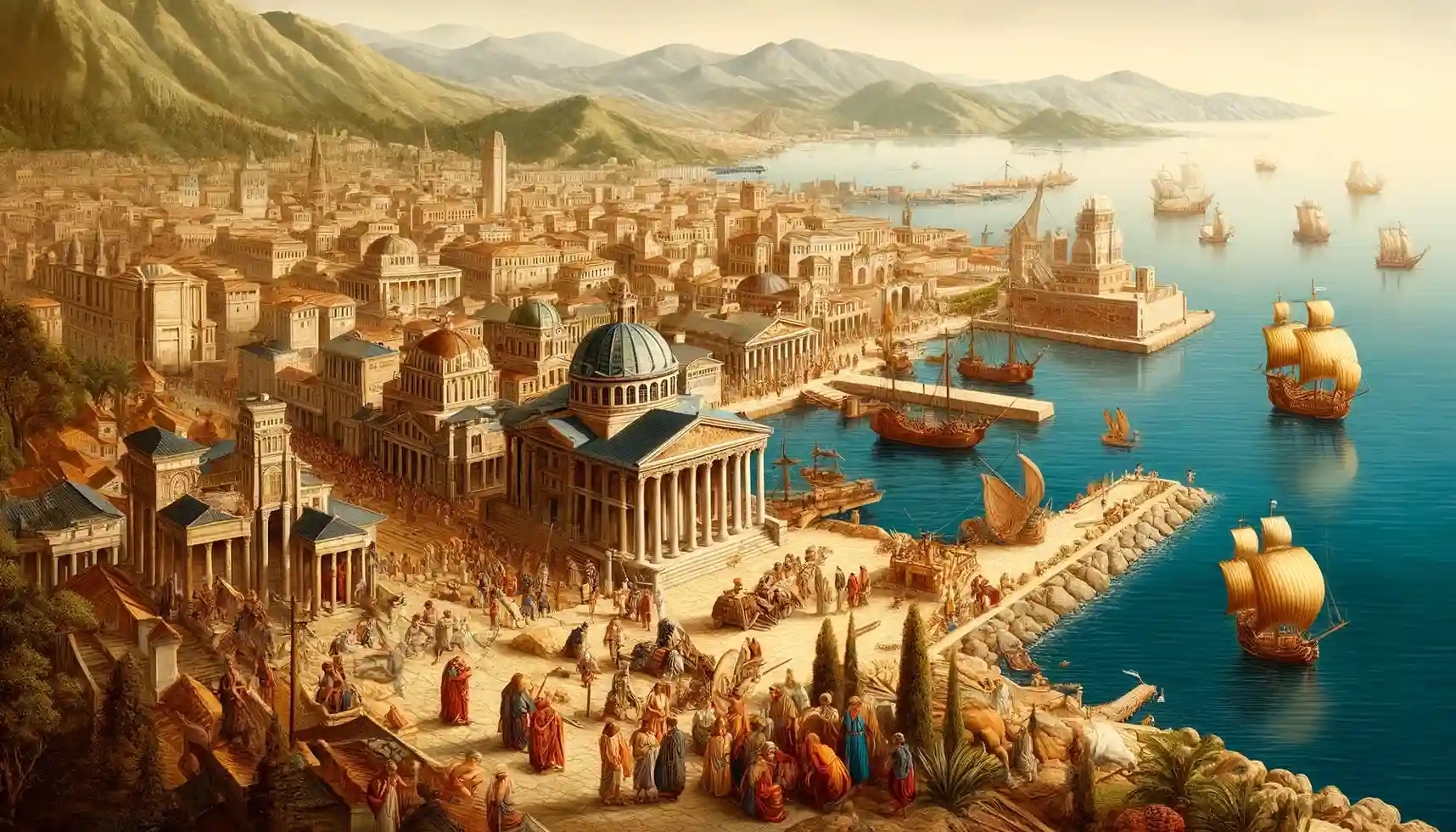Paul’s second missionary journey, accompanied by Silas, Timothy, and later Luke, significantly expanded the reach of Christianity into Europe as they traveled from Antioch through key locations such as Philippi, Thessalonica, Berea, Athens, Corinth, and Ephesus, preaching the Gospel, performing miracles, and establishing strong Christian communities despite facing considerable opposition, thereby demonstrating the transformative power and inclusivity of the Gospel.
Silas, a key companion of Paul on his second missionary journey, played a crucial role in spreading the Gospel, enduring imprisonment and persecution, and helping establish early Christian communities in Thessalonica, Berea, and Corinth.
Thessalonica (now Thessaloniki) was an ancient city in Macedonia, northern Greece, significant in the New Testament for its early Christian community. Founded around 315 BC by King Cassander and named after his wife Thessalonike, it was a key harbor and trade center in the Roman Empire. During Paul’s second missionary journey around AD 50-51, he founded a Christian community there, as described in Acts 17. The city, a cultural hub with Greek, Roman, and Jewish populations, faced persecution, which Paul addressed in his Epistles of First and Second Thessalonians. Today, Thessaloniki is a major Greek city with rich archaeological sites.



